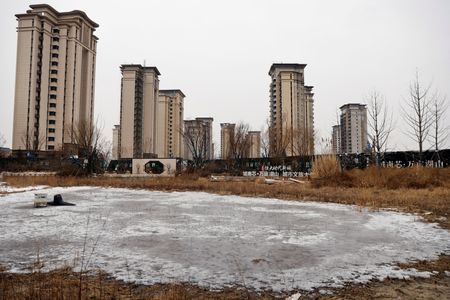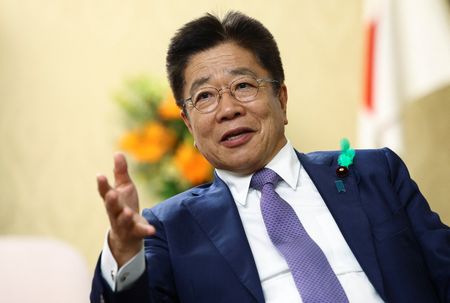By Lewis Jackson, Joe Cash and Claire Fu
BEIJING/SINGAPORE (Reuters) -Zhang Xiong, a general manager at China’s state-owned Sichuan 15th Construction Company, delivered a simple message when he spoke to staff last month: stop losing money.
“We must strengthen institutional mechanisms to ensure that we ‘cannot and dare not’ make losses,” Zhang told a meeting similar to those held by at least six other state-owned firms nationwide in the past month.
The exhortation came amid a national campaign against deflation kicked off by President Xi Jinping in July, to help tackle supply in many industries that is far in excess of demand.
China’s solar panel makers can almost meet world demand roughly twice over, for instance, and profits are in freefall as manufacturers fight for market share.
Zhang said his company in the southwestern province of Sichuan needed to grow revenue and reduce costs at the meeting publicised on its social media account.
Every project needed to come up with a plan to halt losses, which the company would monitor monthly, he added.
At the meeting and others like it, ranks of staff attired in the typical uniform of white, short-sleeved, collared shirts take notes while senior executives emphasise the importance of making money, social media posts by the companies show.
At state-owned Gansu Power Investment Group, executives from two loss-making subsidiaries were told to “shift their mindsets” and draft a plan to return to profits by next year.
Losses were now a “red line,” the company said on its social media account.
Officials of Sichuan 15th Construction Co. and Gansu Power Investment Group did not respond to questions from Reuters.
RUSH OF MEETINGS SINCE JULY
Various reform campaigns at state-owned companies predate Xi’s latest push, but the rush of meetings since July suggests officials feel the need to be seen responding to Beijing’s new line.
But in the absence of accompanying reform to boost consumption, a renewed wave of cost-cutting risks worsening the deflation that policymakers are seeking to reverse, experts said.
“A stern talking to won’t bring more contracts,” said Xu Tianchen, a senior economist at the Economist Intelligence Unit.
Profits were flat across China’s state-owned sector last year and shrank 3.3% in the first seven months of this year, finance ministry data show.
Reuters reporting has shown wages are being cut and side gigs are on the rise across the state sector.
The recent meetings reveal the bind faced by many of these sorts of companies, whether public or private: they must be seen to do something even if the levers that matter sit with central government.
The only concrete plan to emerge so far is for the polysilicon sector, where major players plan to form a cartel, buy up excess capacity and then shut it down.
The meetings over the past month offered few tangible strategies to stem falling profits, although, tellingly, there was little mention of job cuts, a sensitive topic in China where social stability is vital.
The only mention came at a meeting of the state-owned Shaanxi Coal Research Institute last month where Vice President Hao Jing called for losses to be tackled while ensuring “employee stability through resettlement”.
However, the lectures could ultimately make the problem harder to resolve if they make people afraid to acknowledge losses and they start hiding them instead, said Alicia Garcia-Herrero, Natixis chief economist for the Asia-Pacific region.
“Losses happen,” she said. “If you cannot make losses, you may try and hide them, but the losses remain in the system.”
(Reporting by Lewis Jackson, Joe Cash in Beijing, Claire Fu in Singapore; Additional reporting by Colleen Howe in Beijing; Editing by Clarence Fernandez)







